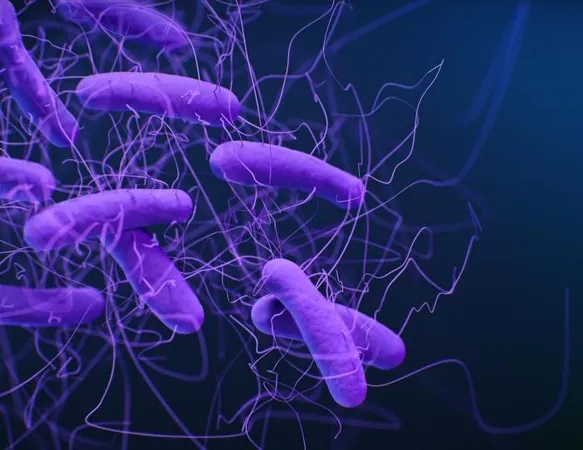
Caffeine's Surprising Impact on Sleep: What Researchers Discovered
2025-06-01
Author: Daniel
What Happens to Your Brain While You Sleep?
A groundbreaking study has revealed that while we sip our beloved coffee to stay wide awake, caffeine is also altering our brain dynamics during sleep! Researchers from the Université de Montréal have unearthed fascinating insights about how caffeine impacts our brain's recovery processes overnight.
The Role of AI in Understanding Sleep Dynamics
Led by Philipp Tholke at UdeM’s Cognitive and Computational Neuroscience Laboratory, the study harnessed the power of artificial intelligence and electroencephalography (EEG) to analyze how caffeine affects sleep. Their findings, published in *Nature Communications Biology*, show that caffeine increases the complexity of brain signals and enhances what scientists refer to as 'criticality' during sleep.
The Balancing Act of Criticality
So, what exactly is 'criticality'? According to Karim Jerbi, the lab director, it’s like an orchestra playing in perfect harmony—enough structure to create beautiful music, but not so much that it becomes chaotic. In this balanced state, our brain operates at its best, processing information swiftly and adapting to new circumstances.
Daytime Alertness vs Nighttime Recovery
While criticality boosts alertness during the day and enhances focus, this high-alert state can disrupt our rest at night. Fellow researcher Julie Carrier pointed out that caffeine keeps the brain more awake and reactive, which may hinder proper relaxation and recovery during sleep.
Electrical Rhythms: A Closer Look at Sleep Patterns
The study highlighted notable shifts in the brain's electrical rhythms when caffeine is in the mix. Caffeine dampens the slower brain waves associated with deep restorative sleep (like theta and alpha waves) while promoting beta waves, which are typically associated with wakefulness and active thought.
Youthful Wakefulness: A Greater Impact on Younger Adults
This phenomenon of caffeine's disruptive influence is especially pronounced in younger adults aged 20 to 27, compared to middle-aged individuals aged 41 to 58. The researchers found that the effects were strongest during REM sleep—the time our brains engage in vivid dreaming.
Understanding Caffeine's Effects on Memory
These alterations in brain activity may shed light on why caffeine can impact our brain's recovery efficiency at night, with significant implications for memory processing. Jerbi emphasizes the importance of understanding these changes to better appreciate how caffeine could be affecting our sleep, cognition, and overall well-being.




 Brasil (PT)
Brasil (PT)
 Canada (EN)
Canada (EN)
 Chile (ES)
Chile (ES)
 Česko (CS)
Česko (CS)
 대한민국 (KO)
대한민국 (KO)
 España (ES)
España (ES)
 France (FR)
France (FR)
 Hong Kong (EN)
Hong Kong (EN)
 Italia (IT)
Italia (IT)
 日本 (JA)
日本 (JA)
 Magyarország (HU)
Magyarország (HU)
 Norge (NO)
Norge (NO)
 Polska (PL)
Polska (PL)
 Schweiz (DE)
Schweiz (DE)
 Singapore (EN)
Singapore (EN)
 Sverige (SV)
Sverige (SV)
 Suomi (FI)
Suomi (FI)
 Türkiye (TR)
Türkiye (TR)
 الإمارات العربية المتحدة (AR)
الإمارات العربية المتحدة (AR)